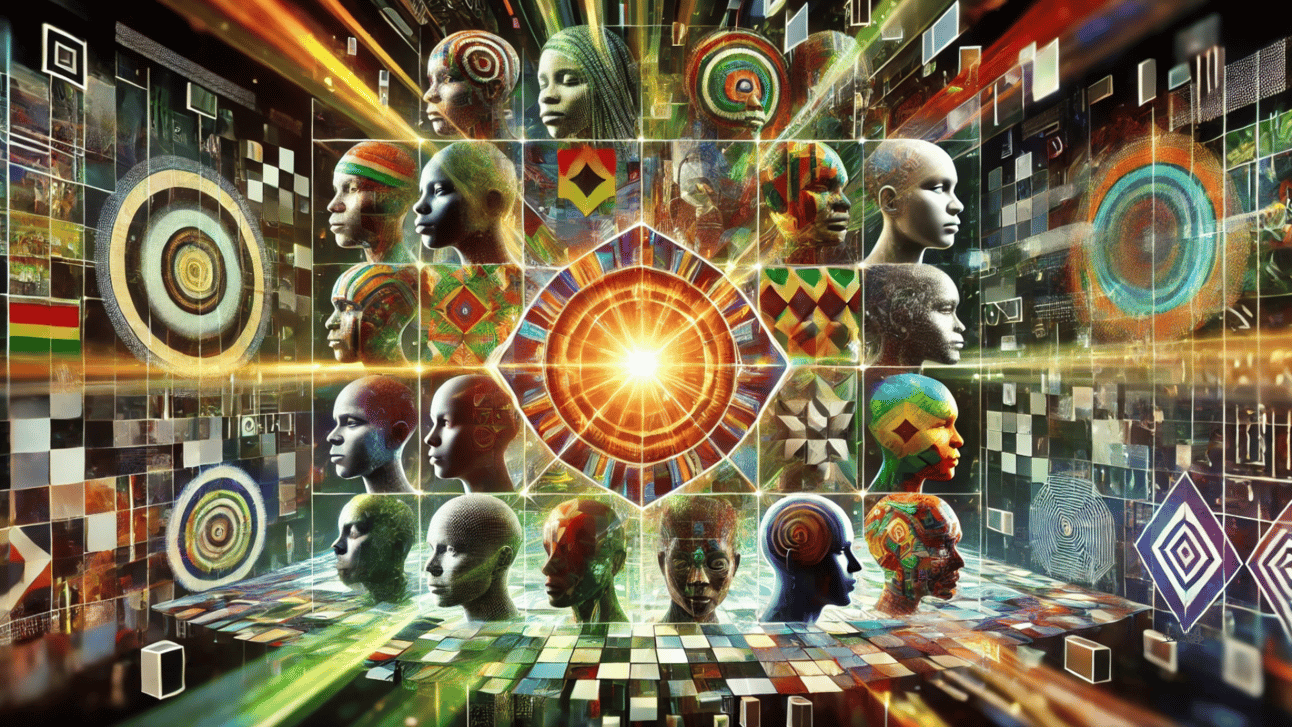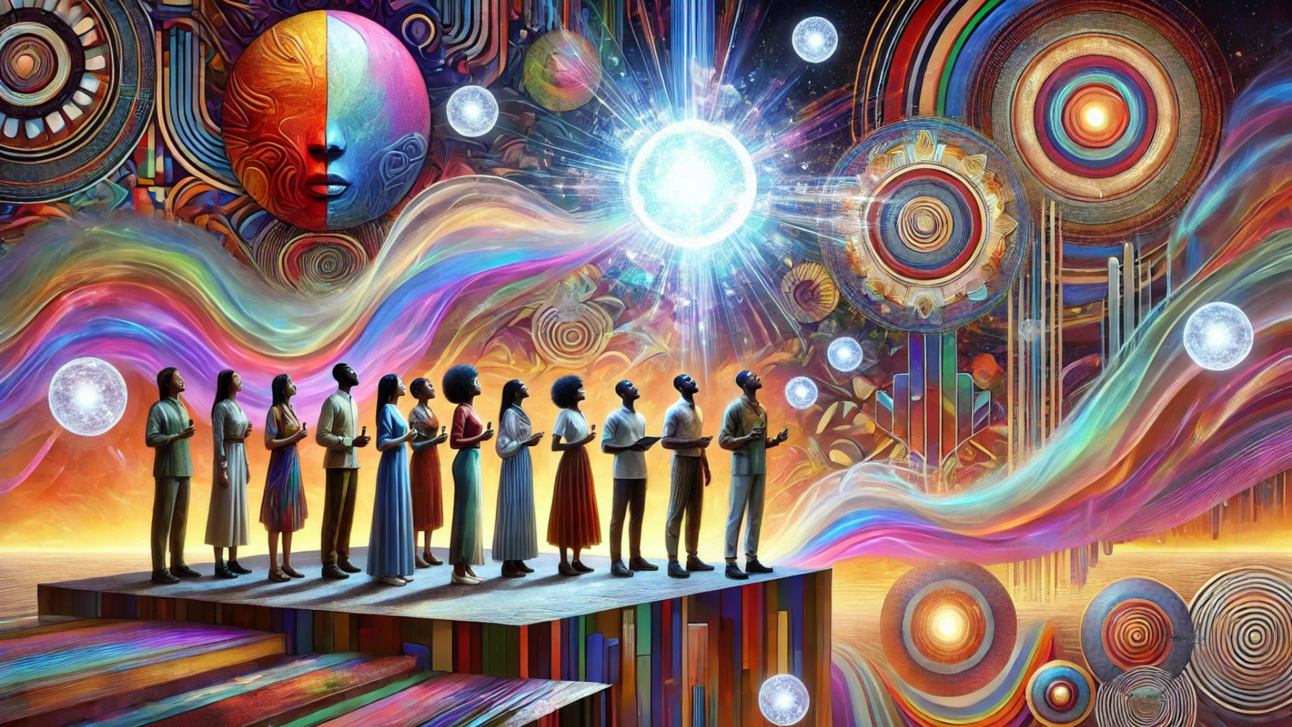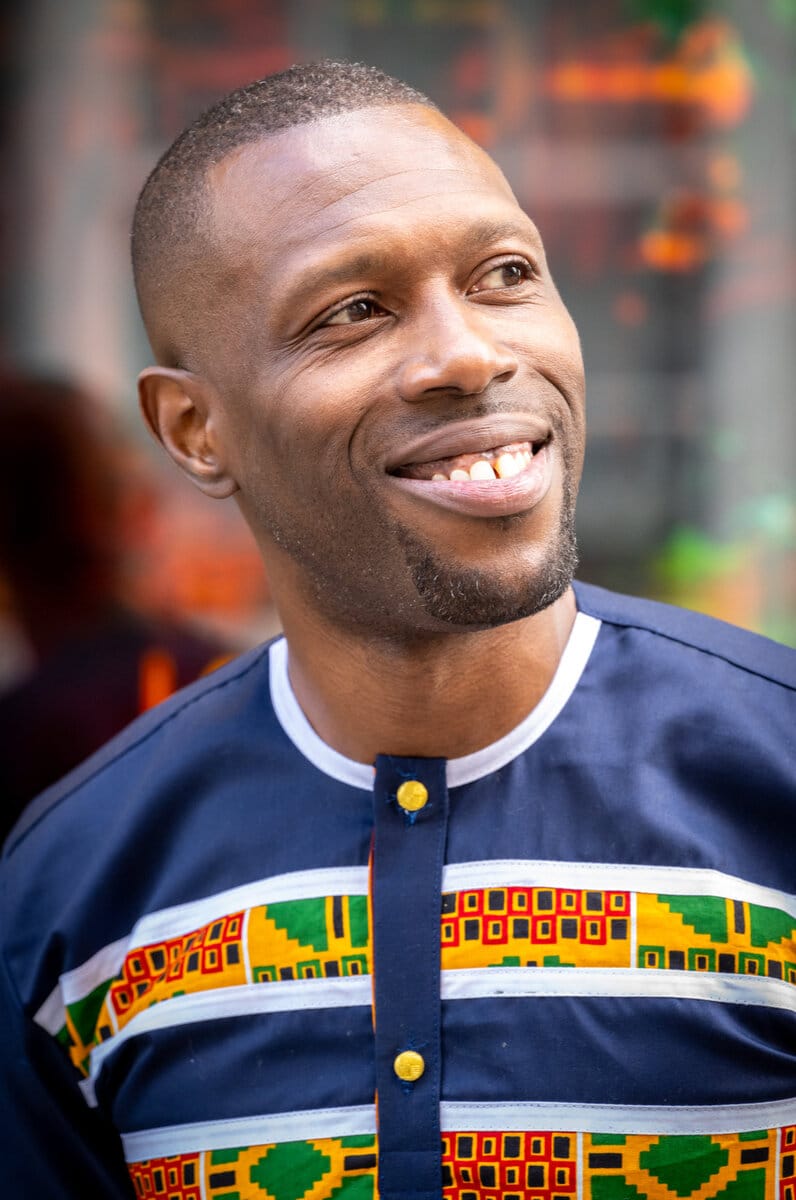
Breaking Free from Labels": A Black individual breaking through shattered glass boxes in a futuristic cityscape, with vibrant colours representing empowerment.
In a world determined to slap labels on us like items on the shelves at Tesco, it’s no wonder we lose sight of the vibrant, messy spectrum of who we are. Whether it’s a racial epithet dropped too casually or the trusty mental health labels like "anxiety" and "depression," the language we use can be more of a hammer than a delicate brush. Sure, labels can offer clarity, but let’s not kid ourselves—they often strip away the richness of our lives, leaving us with something far too… beige.
Mental health diagnoses are meant to help, but far too often, they narrow the view, especially for those of us who straddle the intersections of race, culture, gender, and more. It’s time to stop squeezing ourselves into boxes and embrace the kaleidoscope of who we are. And that’s where Intersectional Cultural Consciousness™ (ICC) steps in, offering a new way of seeing that’s as colourful and multi-dimensional as we are.
The Weight of Labels: A Historical Echo
Mental health labels—much like the N-word—have been used both as tools of empowerment and oppression. Let’s be honest. It wasn’t that long ago that terms like "hysteria" and "schizophrenia" were weaponised against people who didn’t fit into societal norms. In the UK, Black men are still disproportionately diagnosed with schizophrenia—a pattern that has persisted since the mid-20th century.
According to a 2014 report by the UK’s Mental Health Act Commission, Black British men are up to 10 times more likely to be diagnosed with schizophrenia or sectioned under the Mental Health Act than their white counterparts (Bhui et al., 2003). In many cases, this overdiagnosis is linked to misinterpretations of cultural expressions of distress, reinforcing dangerous stereotypes of Black men as "aggressive" or "dangerous."
As I discussed in my book, "White Talking Therapy Can’t Think in Black!", this misdiagnosis isn’t just about mental health—it’s about control. The system labels Black men to suppress their autonomy, just as it did in the U.S. during the civil rights movement. That’s the danger of labels—they can become chains, not just descriptions.
Even today, though diagnostic language has evolved, labels like "anxiety" and "depression" continue to carry weight. While these labels can provide a path to treatment, for many—particularly those from marginalised backgrounds—they feel like ill-fitting boxes, forcing complex experiences into overly simplistic terms. These labels fail to account for the intersections of race, culture, and identity that shape our mental health.
Intersectionality: Beyond the Limits of Language

"The Kaleidoscope of Identity": A kaleidoscopic portal displaying cultural symbols, with diverse individuals gazing into the glowing fragments.
For those of us navigating life as Black Britons or members of immigrant families, "depression" might capture some of our symptoms but does very little to speak to the deeper, more complex realities we face. Where, in that diagnosis, is the cultural dislocation? Where’s the generational trauma? Where’s the weight of living between two worlds?
Just as we reclaim words like the N-word to reshape their meaning, we must also look at how we approach mental health labels with that same critical eye. Intersectional Cultural Consciousness™ (ICC) offers a new framework that moves beyond the one-size-fits-all model and instead embraces the beautiful messiness of our intersecting identities.
The Double-Edged Sword of Diagnosis

Double-Edged Sword of Diagnosis—Relief and Labels: A Black woman holds a glowing double-edged sword. One side symbolises relief, while the other is dark and jagged, representing stereotypes and misdiagnosis. Shadowy figures loom behind, with contrasting light and darkness in the background.
Mental health diagnoses are like a double-edged sword. On one side, they can bring relief—a name for what feels wrong, a map for understanding the struggle. But on the other side, they can be stifling. They reduce a person’s complex experience to a medical term, ignoring the broader social, historical, and cultural forces that contribute to their mental health challenges.
Consider the example of Black women in the UK, who are often labelled with "strong Black woman syndrome"—a harmful stereotype that both oversimplifies their strength and ignores their vulnerability. When they seek help for mental health issues, they’re often misdiagnosed, or their pain is dismissed. A diagnosis of "depression" might capture the sadness but miss entirely the unique cultural pressures they face.
Cultural Silence and the Stigma of Mental Health

Unsilencing Ourselves": A diverse group of individuals on a platform, speaking into glowing orbs that emit light through darkness.
Let’s not forget the cultural silence surrounding mental health in many of our communities. In Black and immigrant families, mental health is often a taboo topic—an unwelcome guest no one wants to acknowledge. “Just tough it out,” they say. “We’ve been through worse.” For a Ghanaian man in the UK, speaking about "anxiety" might be as foreign as the Western mental health framework itself.
But we can change that conversation. ICC™ bridges the gap, bringing culturally conscious approaches into the room. Instead of just handing out labels, ICC™ listens, learns, and respects the complexity of each individual's contribution. It honours the cultural and historical stories that shape our well-being.
Moving Beyond Labels: A Holistic Approach

The Intersectional Futuristic City": A futuristic city blending African patterns and modern technology, with a figure standing at the crossroads of multiple identities.
Much like the conversation around reclaiming racial slurs, we need to ask: Do mental health labels serve us? Yes, they’re helpful. But they aren’t the whole story. What if, instead of confining ourselves to a diagnosis, we embraced the entirety of who we are—our history, culture, and experiences?
Intersectional futurism dares us to envision a world where mental health isn’t about rigid categories but a flexible, inclusive model that understands people at the intersections of their lives. A world where mental health care celebrates the whole person—where instead of reducing us to symptoms, it recognises us as complex beings shaped by our unique experiences.
The Future of Mental Health: AI and ICC™

Imagine a future where AI works alongside ICC™ to transform mental health care. AI has the power to personalise therapy based on the unique intricacies of your identity. It’s like having a cultural sat-nav guiding you through your emotional terrain, recognising how your experiences shape your mental health.
Data-driven AI insights help us identify patterns in your mental well-being, flagging areas that need attention—stress management, resilience, or simply understanding how your intersectional identity influences your mental state. This isn’t therapy as usual—it’s therapy tailored to you by AI and ICC™ together.
ICC™: The Path to Holistic Mental Health
As we look to the future, Intersectional Cultural Consciousness™ (ICC) offers a way to break free from the limitations of traditional mental health care. Diagnoses will still play a role, but they’ll no longer be the sole lens through which we view mental health. Instead, we’ll embrace the whole intersectional reality of our lived experiences.
It’s time to rewrite the narrative. Let’s move beyond confining labels and outdated frameworks. Let’s embrace mental health care that honours our complexities and sees us for our symptoms, stories, culture, and identities.
Your Next Step: Engage with ICC™

"Rewriting the Narrative": A futuristic book of intersectionality floating mid-air, with holographic figures and a hand transforming symbolic shapes.
Unsilencing ourselves means creating space for new narratives—narratives that embrace the richness of our identities, celebrate our diversity, and pave the way towards collective healing and empowerment.
Are you ready to take that step? Let’s start the conversation today. Book your Complimentary ICC™ Consultation or download the Cultural Consciousness Guide and discover how ICC™ can transform your approach to mental health.
As a Black, gay, neurodivergent English-Ghanaian man, I am passionate about rewriting the narrative around mental health through the lens of Intersectional Cultural Consciousness™ (ICC). Drawing from my lived experience at the intersections of race, culture, gender, and identity, I created the ICC™ framework to address the limitations of traditional mental health labels, focusing on the complexities faced by marginalised communities.
With a background in Bempong Talking Therapy and a track record of thought leadership in mental health, AI augmentation, and cultural consciousness, my work challenges systemic biases and promotes holistic well-being. I have been honoured in the business community and continue to push boundaries in the mental health space, inspiring others to embrace their whole, intersectional selves.


